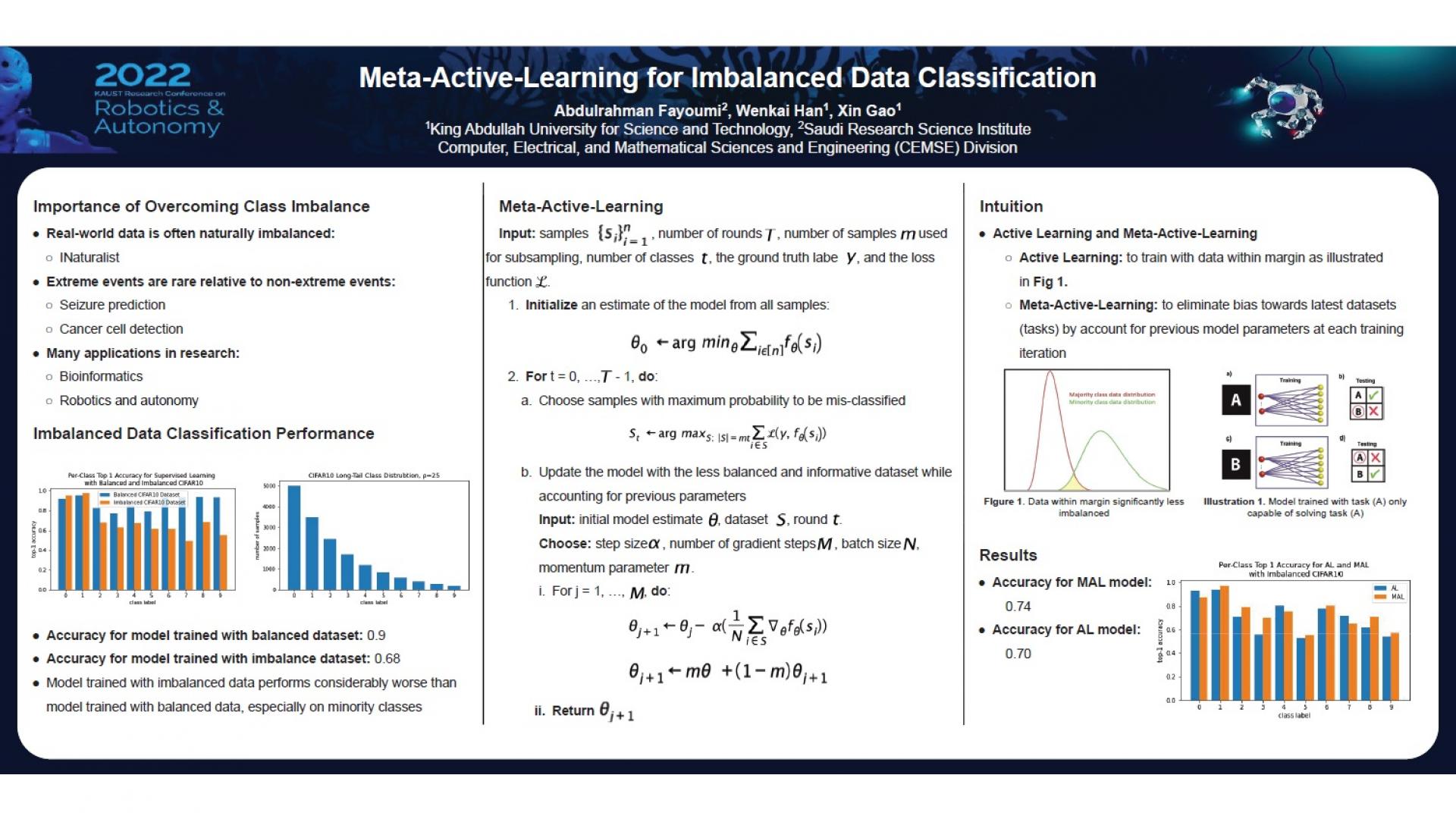Meta-Active-Learning For Imbalanced Data Classification
Abstract
Classification algorithms are known to perform poorly when training with imbalanced datasets. We propose a learning approach that utilizes active learning and meta-learning to overcome the class imbalance problem. While the standard active learning approach for classification with imbalanced data works by iteratively (a) undersampling through selecting the most informative samples of the majority class or classes and (b) training with a more balanced dataset, our meta-active-learning approach does this while also accounting for previous experiences at each iteration. This addition helps in minimizing an effect similar to catastrophic forgetting, where the parameters of the model are biased towards patterns learned in the latest iterations. We demonstrate that our MAL approach produces state-of-the-art results by testing it on an artificially long-tail-imbalanced CIFAR10 dataset then comparing it to the active learning approach, which has already been proven to produce state-of-the-art results in previous studies.
Practical deployments of our MAL learning method in binary and multi-label classification tasks theoretically include any domain in which class imbalance occurs, including robot vision, sentiment analysis, and medical diagnosis.
Brief Biography
Abdulrahman Fayoumi is a high school senior studying at Dar Al-Thikr schools in Jeddah. He previously interned at the CBRC under the supervision of Professor Xin Gao and Mr. Wenkai Han. His work revolved around the development of a new learning approach for learning with imbalanced data that produces state-of-the-art results. He is currently working on generalizing his work in class imbalance to cover other problems such as learning with noisy data and is advised by a professor from Manchester Metropolitan University. After finishing high school, he aims to get his bachelor’s in computer science then come back to KAUST and join the AI Initiative, hoping to be a part of the current AI revolution and the upcoming greater one.
